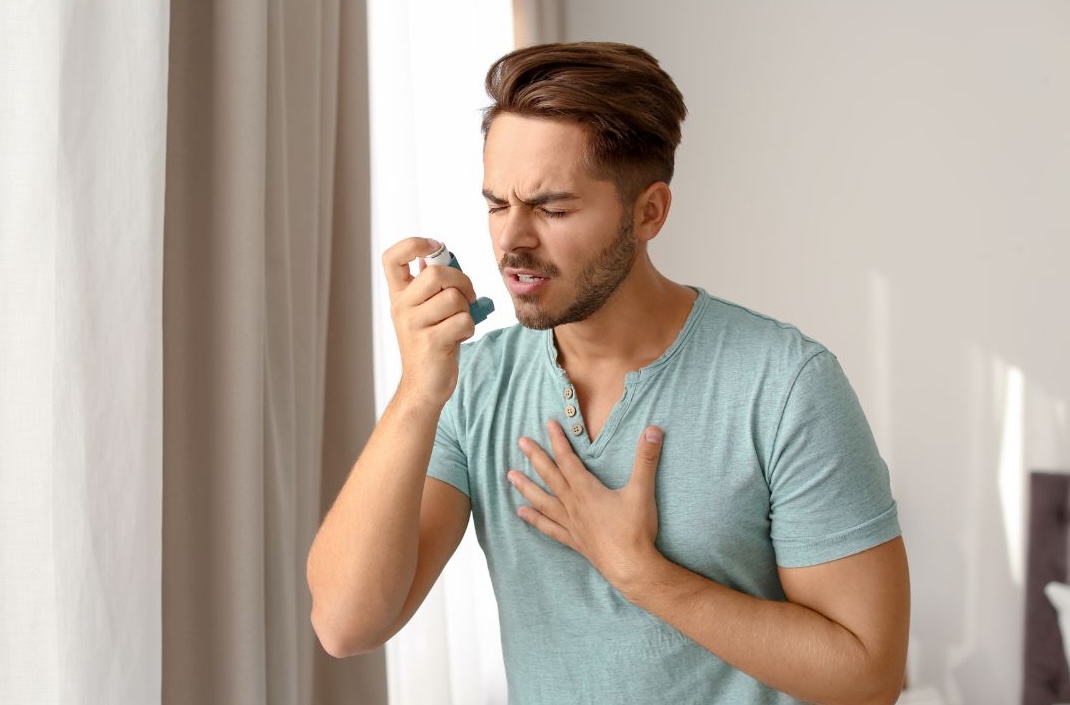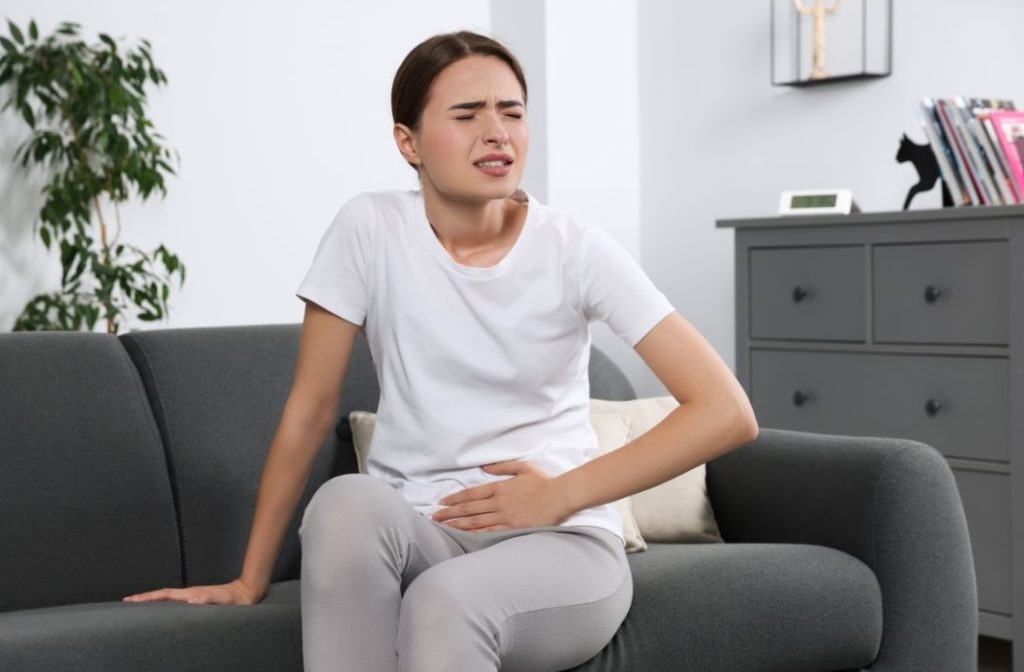Warm weather might lift your mood, but it can quietly make some health conditions worse. From asthma flare-ups to eczema or fatigue, high temperatures affect how our bodies respond – and sometimes how our medication works, too.
This guide explores common hot weather health issues and how to manage them. Whether you’re dealing with a long-term condition or just feeling more run-down than usual, a few small changes can help you stay well when it’s warm outside.
Asthma and Other Respiratory Conditions

Hot air, rising pollen, and pollution can make breathing harder, especially for those with asthma, COPD, or hayfever. Warmth causes airways to tighten, while airborne irritants often increase in summer, particularly in cities.
For many, this means more wheezing, coughing, or tightness in the chest, sometimes unexpectedly.
To stay ahead of it:
- Avoid being outside during peak heat and pollen times.
- Keep windows closed when pollen counts are high.
- Carry your reliever inhaler if you use one.
- Use fans or purifiers indoors if the air feels stuffy.
Heat and chronic conditions often go hand-in-hand, so don’t ignore symptoms that feel slightly worse than usual.
High Blood Pressure and Heart Disease
Hot weather makes your heart work harder. As your body tries to cool down, blood vessels widen and you sweat more, which can cause drops in blood pressure or, over time, added cardiovascular strain.
Dehydration and overexertion increase the risk, especially for people with high blood pressure or existing heart issues.
What helps:
- Rest during the hottest part of the day (usually 12–3pm).
- Drink water regularly, even if you don’t feel thirsty.
- Limit caffeine and alcohol — both can dehydrate you.
Some blood pressure medications may increase dehydration symptoms in summer. If you feel unusually lightheaded or fatigued, it’s a good idea to check in with one of our healthcare professionals at WePrescribe.
Eczema and Skin Irritations
Heat and sweat are common triggers for eczema and other skin flare-ups. Moisture gets trapped in skin folds, friction increases, and the result can be more itching, redness, or inflammation, especially around elbows, knees, and the neck.
Even people without chronic skin conditions may notice rashes or irritation in warmer months.
Here are a few easy ways to ease eczema and heat together:
- Choose loose, breathable clothing like cotton.
- Stick to fragrance-free, alcohol-free skincare.
- Take cool showers and pat the skin dry.
- Store creams in the fridge for a soothing effect.
Urinary Tract Infections (UTIs)

Hot weather doesn’t directly cause UTIs, but it makes them more likely, mostly because many of us drink less when it’s warm, especially if we’re out and about.
When you’re dehydrated, you urinate less often. That gives bacteria more time to build up in the urinary tract, which increases the chances of infection. For some people, especially women or those with a history of UTIs, this can become a recurring summer issue.
To reduce the risk:
- Aim to drink water regularly – even if you’re not thirsty.
- Don’t delay going to the toilet when you feel the urge.
- After swimming, change out of wet swimwear as soon as you can.
- Avoid perfumed soaps or intimate washes that can upset your natural balance.
If you feel a burning sensation when you wee or notice cloudy or strong-smelling urine, check our UTI and cystitis advice page — early treatment can help stop it from getting worse.
Dehydration and Heat Exhaustion
In warm weather, your body loses water faster through sweat, heat, and even breathing. If you don’t drink enough, dehydration symptoms can appear quickly.
Look out for:
- Dry mouth
- Dizziness or tiredness
- Headaches
- Dark yellow urine
If it continues, heat exhaustion can set in – with nausea, confusion, or even fainting. Older adults, children, and those on certain medications are more at risk.
To prevent it:
- Drink water regularly – not just when you’re thirsty.
- Eat water-rich foods like cucumber or melon.
- Rest in the shade and avoid overexertion.
- Wear light clothing and take breaks if you’re active.
Stay alert – especially during heatwaves or when outdoors for long periods.
Hayfever and Allergies
Summer might bring the sunshine, but it also brings pollen – and lots of it. For anyone with hayfever or seasonal allergies, this can mean a sudden surge in symptoms like sneezing, itchy eyes, or a blocked nose.
Higher temperatures also increase air pollution, especially in built-up areas. When pollen and pollutants mix, they can irritate the airways even more, making symptoms last longer or feel more intense.
Here are a few small changes that can make a big difference:
- Check pollen forecasts before heading out.
- Shower and change clothes after being outdoors.
- Keep windows shut early morning and late evening when pollen peaks.
- Consider using a pollen filter in your car.
If hayfever regularly gets in the way of your day, our hayfever treatment page might help with any next steps, especially if you’re looking for discreet, online advice.
Medication Side Effects Made Worse by Heat
Heat doesn’t just affect your body – it can also change how some medicines make you feel. During summer, you might notice that side effects like dizziness, tiredness, or dry mouth seem more intense. That’s because some drugs, especially those for blood pressure, allergies, or mental health, can reduce your body’s ability to stay cool or hydrated.
Certain antibiotics and skin treatments may also increase your sensitivity to sunlight, making sunburn more likely.
Another thing to watch: storage. Medicines left in hot cars, bathrooms, or direct sunlight may lose effectiveness or degrade faster than expected.
Some simple tips to stay safe:
- Store medication in a cool, dry place (unless told otherwise).
- Take your doses with water and stay hydrated throughout the day.
- Speak to a pharmacist if you feel more affected by your usual treatment than normal.
When it comes to hot weather health, a little awareness goes a long way. Many conditions that flare up in summer can be managed with a few simple tweaks – staying hydrated, avoiding peak sun, and knowing what to expect.
If you’re unsure how heat might affect your medication or symptoms, it’s always worth asking a pharmacist or exploring support online. At WePrescribe, we’re here to help you stay well, all year round.


